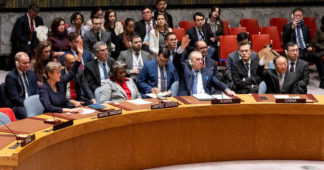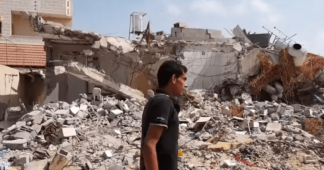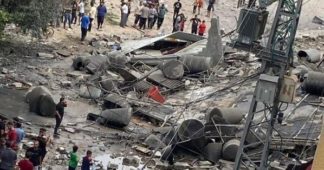Netanyahu continues to threaten a Rafah invasion ‘with or without’ a deal
May 5, 2024
Egyptian and Qatari-mediated ceasefire talks between Israel and Hamas are expected to fail as the two sides are at an impasse.
The main obstacle is Hamas’s demand for a deal to lead to a permanent ceasefire and Israeli withdrawal from Gaza and Israeli Prime Minister Benjamin Netanyahu’s insistence that any truce would only be temporary.
There were signs over the past week that progress was being made in the talks, but an Israeli official told The New York Times that Netanyahu’s repeated threats to invade Rafah “with or without” a deal hardened Hamas’s demands to ensure Israeli forces wouldn’t enter the city.
According to media reports, the deal that was on the table would have involved Hamas releasing 33 Israeli hostages in the initial phase in exchange for a 40-day ceasefire and commitments to work toward a longer truce. Hamas still insisted on a permanent ceasefire, and Netanyahu’s threats made it clear that wasn’t going to happen.
Ismail Haniyeh, Hamas’s political chief, accused Netanyahu of “sabotaging” the negotiations and said the Israeli leader was trying to “invent constant justifications for the continuation of aggression, expanding the circle of conflict.”
Yossi Verter, an Israeli journalist who writes for Haaretz, said in an analysis piece that Netanyahu likely thought Hamas would reject Israel’s latest proposal, and when the group didn’t, he turned to sabotage.
“Netanyahu is fleeing from a hostage deal. The closer it gets, the faster he runs to avoid it. At least twice in recent months he has sabotaged the sensitive moves toward a deal, whether through public statements or covert messages, or by curbing the mandate of the negotiating team. It was no different this time,” Verter wrote.
In comments on Sunday, Netanyahu reaffirmed his goal of “eradicating” Hamas, which US officials do not think is realistic. “Ending the war, and leaving Hamas intact — the State of Israel cannot accept that,” he said. “We are not prepared to accept a situation in which the Hamas brigades come out of their bunkers, take control of Gaza again, rebuild their military infrastructure, and return to threatening the citizens of Israel.”
We remind our readers that publication of articles on our site does not mean that we agree with what is written. Our policy is to publish anything which we consider of interest, so as to assist our readers in forming their opinions. Sometimes we even publish articles with which we totally disagree, since we believe it is important for our readers to be informed on as wide a spectrum of views as possible.











